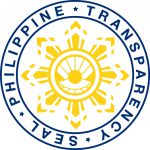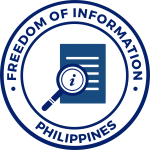Written by: Carleen Salas

To fulfill its mandate of integrating volunteerism in the basic and higher education curriculum, the Philippine National Volunteer Service Coordinating Agency (PNVSCA) facilitated the creation of a Technical Working Group (TWG) that shall help formulate mechanisms, guidelines, tools and templates to raise the consciousness of the youth and develop the culture of volunteerism among the citizenry. The first TWG meeting was held on 19 July 2021 via Zoom with participants from the Department of Education (DepEd), Technical Education and Skills Development Authority (TESDA), De La Salle – College of St. Benilde and Silliman University.
Mr. Rowell Padernal, the Bureau of Curriculum Development Specialist – DepEd, shared how volunteerism is being integrated in the subjects of Araling Panlipunan (AP) in Grades 2 to 5 and Grade 10, and Edukasyon sa Pagpapakatao (ESP) in Grades 3 to 9. The integration of the said subjects in the curriculum is based on the Republic Act 11476 or the Good Manners and Right Conduct (GMRC) and Values Education (VE) Act recognizes the vital role of the youth in nation-building and promotes and protects their social well-being. It also emphasizes the fundamental role of all educational institutions in the inculcation of fostering love of humanity and the encouragement of the youth to be involved in public and civic affairs.
On the other hand, Mr. Rosendo Rafael, Senior Technical Education and Skills Development Specialist (TESDS) of the Curriculum and Training Aids Development Division – National Institute for Technical Education and Skills Development of TESDA, shared the challenges they encountered in the integration of volunteerism in the TESDA Programs, especially since TESDA follows a competency based Technical-Vocational Education and Training (TVET) framework. TESDA’s protocol is to align their programs based on the needs of their stakeholders which is most likely focused on the occupational requirements set by various industries. In spite of this challenge, Mr. Rafael shared that he constantly encourages his colleagues to further promote the spirit of volunteerism in their own respective ways. On that note, PNVSCA Executive Director Donald James D. Gawe suggested an option to focus on the soft skills of their stakeholders which may serve as an entry point to integrate volunteerism in their respective programs.
Mr. Novee Maestrecampo, Jr., a faculty member of the Senior High School and Assistant to the Director of the Office of Community and Engagement and Service-Learning of Silliman University, presented that volunteerism is a dimension of the “whole person” education at Silliman University. He referred to “Whole Person Education” as educating the students with multifaceted learning opportunities and venues inside and outside the University; thus the concept called 5Cs, namely Classroom, Church, Court, Culture, and Community. Each of these 5Cs enhances the mindset of each University learner to become “people-oriented” through the spirit of volunteerism. Mr. Maestrecampo, Jr. ended his presentation by reiterating that the community experience will enable students to enhance their social, personal, and academic life. He added that the Office of Community Engagement and Service Learning (OCESL) and the Community Calamity Response Program (CCRP) are two units in the University that are potentials for volunteer efforts at Silliman University.
The TWG Chair, Ms. Veronica Templo-Perez emphasized that in theory, volunteerism is very much integrated into the curricula of most educational institutions. However, there is a need to improve the monitoring and auditing aspects to ensure that all educational institutions of Basic Education and Higher Education are implementing the integration of volunteerism. ED Gawe recommended that the concepts of volunteerism that are being taught in school need to be reviewed and put into proper context for better appreciation.
The proposed functions of the TWG were presented by ED Gawe. He ended by expressing hope that all educational institutions would be able to identify an entry point to integrate volunteerism in their respective curricula. It was agreed that the next step would be to engage accreditation organizations and school associations to discuss the inclusion of volunteerism in their curricula. The next TWG Meeting will tackle action planning and it will be held at the end of the third quarter. The members expressed their enthusiasm to participate in the succeeding meetings and thanked PNVSCA for taking the initiative to organize such a technical working group.
The author is currently the Volunteer Service Officer (VSO) I of the Policy, Advocacy and Technical Services Division (PATSD), Philippine National Volunteer Service Coordinating Agency.
Visit PNVSCA website (www.pnvsca.gov.ph) and PNVSCA Facebook (facebook.com/PNVSCA) for other stories and information on volunteering.




